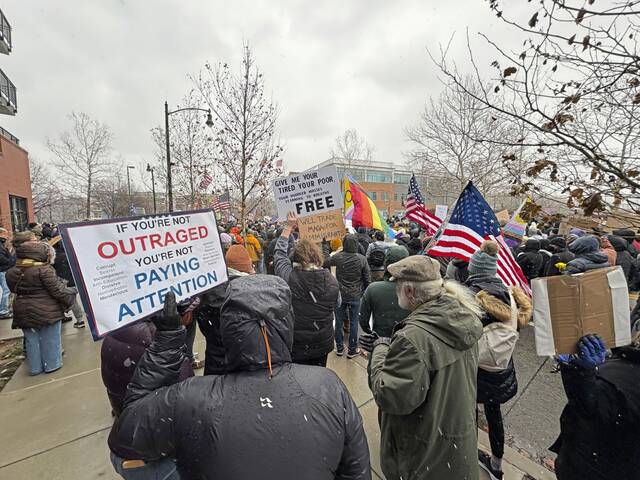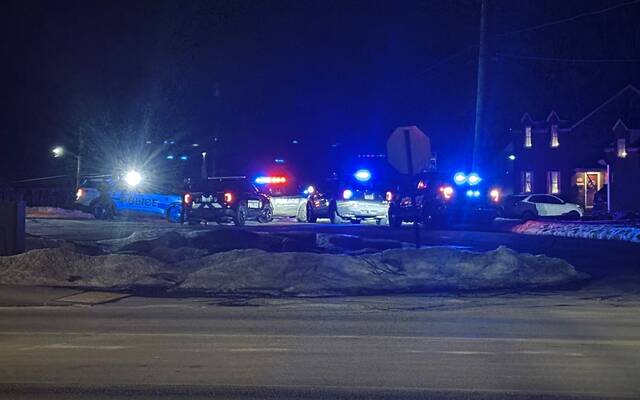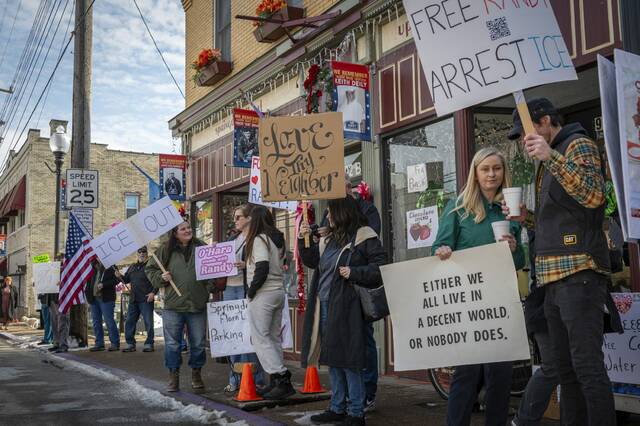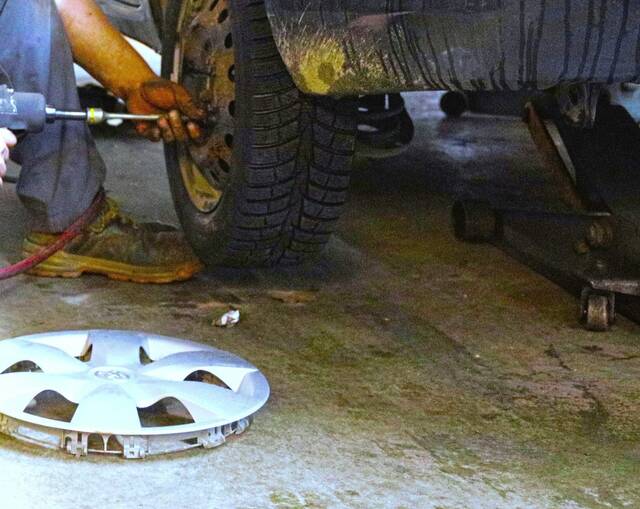Four months after police released body camera video showing an officer shooting a Ligonier Township man, the Westmoreland District Attorney’s Office is asking local police departments to have prosecutors review similar footage before it is released publicly.
The request hasn’t been opposed by police, but legal, law enforcement and open records experts say the review could have a chilling effect on what the public gets to see.
The body cam video released by Ligonier Township to the Trib in August after an open records request showed police officers who responded to a domestic call firing a stun gun and a handgun nearly simultaneously when confronted by Robbie Thomas Saunders, 59, who was wielding a machete. He later died at Conemaugh Memorial Hospital in Johnstown.
Westmoreland District Attorney Nicole Ziccarelli ruled the officers’ use of deadly force against Saunders was justified because “an immediate and imminent threat was posed to responding police officers who were prepared to use their own resources to protect themselves and the lives of those around them.”
A spokeswoman for Ziccarelli’s office previously said the district attorney was not involved in the decision to release the video. Ziccarelli now says she believes the release of the video — which shows the face of one of the officers — could be a safety issue.
“We’re very concerned about that,” Ziccarelli told TribLive.
Ziccarelli said she modeled the agreement for the video review after a policy used by Allegheny County District Attorney Stephen A. Zappala Jr. Messages left for Zappala seeking comment were not returned.
The agreement proposed to police departments in Westmoreland County came under question by two attorneys who also teach law.
The use of police body and dashboard cameras were instituted with the understanding that “one of the purposes was for public transparency and public accountability,” said University of Pittsburgh law school professor David Harris, who has researched police conduct. Giving prosecutors the opportunity to determine what can be released “makes them (videos) less useful as an accountability device,” he said.
“It’s a significant turn away from public accountability. They just won’t put it out,” Harris said.
Bruce Antkowiak, a law professor at Saint Vincent College near Latrobe and a former assistant U.S. Attorney involved in criminal prosecution, said he could understand a rationale for the policy if the video shows potential witnesses to a crime who may face possible intimidation. Another reason for a review would be to avoid inflaming a potential jury pool, leading to a possible problem while attempting to empanel jurors, he said.
Antkowiak said the district attorney’s office may be concerned that the local police departments “would too easily turn over the information” when requested.
“It perplexes me that there would be a need to announce this policy,” said Antkowiak, chief counsel for the college. “I don’t understand the need for this.”
The requirement that police audio and video recordings be released through a Right-to-Know request was removed by the state in 2017, said Melissa Melewsky, media law counsel for the Pennsylvania News Media Association. It is more difficult to obtain those recordings because they are only accessible through the state’s Act 22, pertaining to wiretaps, she said.
“In practice, there is very little public access provided under Act 22, a significant problem for Pennsylvanians seeking to understand law enforcement activity in the communities they serve,” Melewsky said.
Some counties have enacted a policy wherein the district attorney reviews those requests before public access may be granted, but that policy is neither required by law nor prohibited, Melewsky said.
Giving municipalities the option of having prosecutors and the municipality’s solicitor review similar footage will provide consistency for the police departments handling a request to release a video, Ziccarelli said. There will be a collaborative effort when reviewing the video and the request to make it public, she added.
“We felt there was a need to provide uniformity and a need for direction from the district attorney’s office,” which will be prosecuting the cases, Ziccarelli said. “You have to protect the integrity of our investigation.”
North Huntingdon, on Dec. 20, became the first municipality to approve an agreement with Ziccarelli’s office.
Police Chief Robert Rizzo told township commissioners that he fully supports the agreement, which Ziccarelli had discussed at a recent Westmoreland County Chiefs of Police Association meeting.
North Huntingdon Commissioner Ronald Zona, who also is the county’s chief detective in the district attorney’s office, said the matter came to light because of issues over the past two years.
“It takes the burden off the (municipality’s) solicitor” to make that decision, said Zona, who abstained from voting on the agreement because of his employment.
At least one other local police chief said he would welcome an agreement with Ziccarelli’s office.
Penn Township police Chief John Otto said he would like to have those with a different vantage point reviewing such a video.
“We want to make sure all the facts come out and all the circumstances come to light,” Otto said. Viewing an entire video is better than just a “snippet that does not tell you the entire story.”
Having “an office full of attorneys who can research the (open records) request” to make sure the police department is abiding by the law “surely never hurts,” Otto said. He intends to discuss the proposal with township officials.
Ligonier Valley Chief Michael Matrunics, who released the video of the July incident, did not return a phone message seeking comment.








